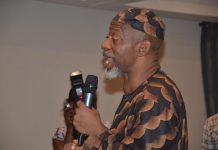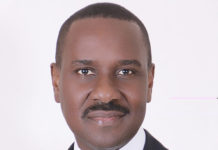In my piece a while back about the economic recovery and growth plan (ERGP) I alluded to the fact that this plan should not be about a policy document that speaks to nothing in concrete terms particularly with regards to implementation.
As a background, let me refresh our memories as to what the ERGP was set out to achieve. The economic development document was developed by the Nigerian government as a short-term strategy to get the country out of recession. It is focused on tackling constraints to growth, leverage the power of the private sector, promote national cohesion & social inclusion, allow markets to function and uphold core values. Within the period of 2017 – 2020, the plan aims to restore growth, invest in people, build a globally competitive economy and achieve macroeconomic stability. This is the core and at the heart of this are certain ingredients to stimulate same.
In a bid to achieve the growth objectives of the ERGP, the Federal Government has initiated what it calls Focus Labs in three selected areas within six sectors. The goal of these Focus Labs is quite clear and straightforward and it is in the main to accelerate and deliver quick results on investments and job creation. These Focus Labs are in 3 selected areas within 6 critical sectors-; Agriculture & Transportation, Manufacturing & Processing, and Power & Gas. The objectives of these Labs are to accelerate new investments for critical projects and resolve complex inter-agency problems that inhibit private sector investment.
The Focus Labs fast and actionable projects will accelerate existing projects, promote big ideas, but ensure these projects are implemented in the short term. In removing immediate roadblocks to these projects, the Focus Labs will ensure that enablers for high value projects are de-cluttered, using these projects to create showcases for development of enabling framework. This will focus on key actions needed to unlock value and they include; policy or regulatory decisions needed, outstanding approvals, infrastructure improvements , processes that need to be fast tracked and human capital gaps that need to be plugged and properly filled in equal measure.
The specific outcomes of the Focus Labs will include the identification of entry point projects which must be catalytic in nature and help spur economic growth and will in turn increase investment and job creation in the Country. The development of clear 3-feet implementation plan for each project with identified budget and key performance indicators and the alignment of stakeholders to execute project plans is also in the strategic plan for the Labs. Overall the emphasis is unlocking impactful projects with private sector funds but debottlenecking the bureaucracy often associated with the Public sector.
In terms of timelines, the ERGP focus Labs will take place over a three phase period lasting sixteen weeks, with the main Labs commencing on March 12, 2018. The Pre-Lab Phase, which is reviewing all existing reports to develop initial hypothesis, mapping key stakeholders to be engaged and conducting interviews with key stakeholders and decision makers to validate hypothesis and findings is ongoing. The main Labs with key stakeholders to address priority areas and potential entry point projects will start mid-March 2018 and run for six weeks. The main Labs period will also see the development of the 3-feet implementation programmes earlier stated above with identified entry point project with budget and KPIs. The post-Lab phase will integrate key recommendations into a consolidated high quality programme for the purpose of implementation, conduct syndication with all key stakeholders to obtain buy-in on the implementation report and develop a project final report. As it is often with Government and Public sector programmes and policies, there is often no measurement and evaluation but this has an internal mechanism for that which is already at the heart of the ERGP itself and its other constituent parts.
 The investment goal of the Focus Lab is to mobilize $25billion dollars in investment commitments across the various sectorial areas. In achieving this, the project has identified 126 potential entry point projects; agriculture & transportation with 74, while power & gas and manufacturing and processing with 7 and 45 projects respectively inclusive of Mining and metallurgy.
The investment goal of the Focus Lab is to mobilize $25billion dollars in investment commitments across the various sectorial areas. In achieving this, the project has identified 126 potential entry point projects; agriculture & transportation with 74, while power & gas and manufacturing and processing with 7 and 45 projects respectively inclusive of Mining and metallurgy.
As it is with all projects, corporate governance principles need to be ingrained. The governing structure of the Labs shows the seriousness government has placed on the initiative. The Federal Ministers in charge of the sectorial areas; Agriculture & Rural Development, Transport, Industry, Trade & Investment, Mines & Steel Development, Power, Works & Housing and State for Petroleum Resources all report to the Central Steering Committee coordinated by the Minister of Budget and National Planning. The Minister of Budget and National Planning reports to the Economic Management Team, coordinated by the Vice President, who reports to the President. Very circular and hopefully very effective.
What I found noteworthy whilst discussing with the Honorable Minister of Budget and Planning Senator Udoma Udo Udoma is the nexus and alignment of the policies with sister ministries that will bring the project to life and fruition. The ministries I’m referring to include Ministry of Trade and investment, Transport, Mines and Solid minerals as well as Power. In times past, a lot was packed in and hardly thought through and we ended up with what the government wanted devoid of private sector input, buy-in and by extension participation
These Focus Labs will indeed provide a valuable platform for the private sector to tap into the huge opportunities in these sectors on the one hand and on the other hand, it provides the government with a focused approach to accelerating quick wins in private sector investment to create jobs and truly stimulate broad-based economic development.
As a nation in a hurry to industrialize, we need to create the necessary infrastructure to support manufacturing and other critical sectors as enunciated in the blue print. As a marker to the importance of these labs, the president is expected to personally launch it in a couple of weeks to signal to private sector players that it is ready and open for business putting the tire to the road thereby walking the talk.
 Ade Adefeko is Vice President Corporate & Government Relations and also in charge of External Communication and Stakeholder Management at OLAM NIGERIA, the largest Agribusiness and food company in Nigeria and a subsidiary of OLAM international of Singapore the parent company with a presence in 70 countries. Ade is a polyglot, an avid writer, and the current Chairman of the Nigerian Association of Chambers of Commerce, Industry, Mines and Agriculture Export Action Group (NACCIMA) NEXAG.
Ade Adefeko is Vice President Corporate & Government Relations and also in charge of External Communication and Stakeholder Management at OLAM NIGERIA, the largest Agribusiness and food company in Nigeria and a subsidiary of OLAM international of Singapore the parent company with a presence in 70 countries. Ade is a polyglot, an avid writer, and the current Chairman of the Nigerian Association of Chambers of Commerce, Industry, Mines and Agriculture Export Action Group (NACCIMA) NEXAG.


























